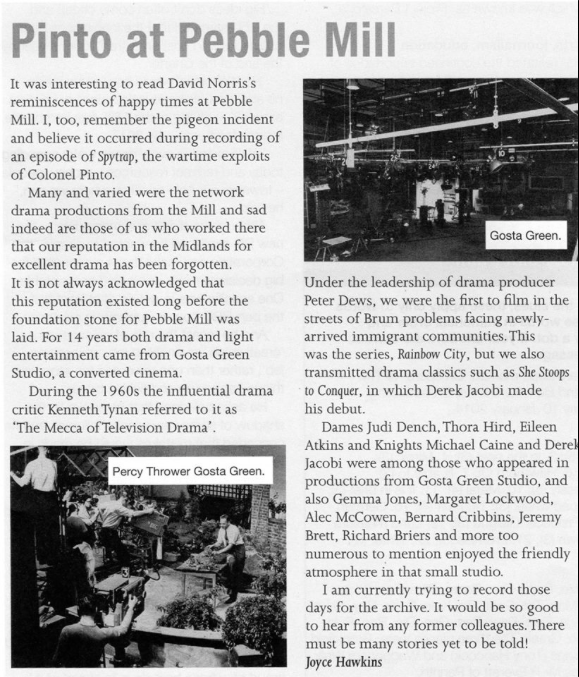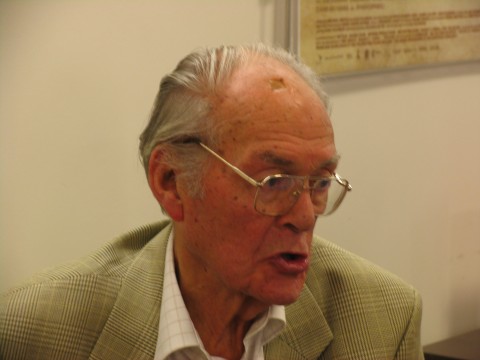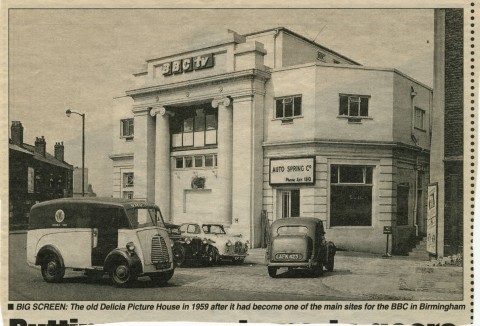(Photos from Jim Knights, of the regional Top Gear show, somewhere in Europe, no reproduction without permission)
(The following obituary for director, Derek Smith, has been written by his son, Graham Smith).
Derek Smith joined the BBC in Birmingham 1957, working as an assistant producer on the newly created Farming magazine programme. He worked at Gosta Green studios and Carpenter Road.
In the early 1960s he moved on to general programming, as director and producer. He made a number of films about the armed services, including Soldier In The Sun, a film looking at the Royal Anglian Regiment in Aden and Yemen (1964) (The film can viewed on BBC Four Army Collection and i-Player). Singapore Twilight (1965), The Last Outpost, (1965); Men Of Action, (1966); They Speak The Language Anyway (life at a US Air Force base.) (1967).
From the Pebble Mill studios in Birmingham, he made a number of single network documentaries. For The Flight Deck Story, the history of the aircraft carrier, he filmed on board both HMS Eagle and on USS Enterprise off the coast of Vietnam. The film was narrated by actor Kenneth More. (BBC1, Tuesday Documentary 1969)
Mission To Hell followed the Bishop of Birmingham, Leonard Wilson, returning to Singapore to tell his story of war time imprisonment by the Japanese. In the film, he met his former torturer. (BBC 2 1969)
Another military history film Derek made at this time was Jump Jet, the history of the Hawker Harrier. (BBC 1 1970).
A film for the series “The World About Us”, The Lost River Of Gaping Gill showed cavers Sid Perou, Mike Wooding and Tom Brown as they sought to discover the route of an underground river in the Yorkshire Dales. (BBC 2 1970)
Journey Through Summer was a series of six films with actor and writer P.J. Kavanagh, as he viewed Britain through long distance walks. (1974)
Four In Hand was a one-off film with HRH Duke of Edinburgh, demonstrating Carriage Driving. (1974)
A studio based programme Derek devised was Major Minor, a piano competition for 10-13 year-olds. A BBC Midlands programme, repeated on the network, it ran for three seasons and was presented by musician Steve Race.
In 1975, Derek returned to military matters with Return To Dunkirk. On the 35th. anniversary of the evacuation, the film told the story of the men who escaped from a massacre at Esquelbecq. (BBC 2 1975)
Just A Year was a film that followed three of the survivors of the Birmingham pub bombs in November 1974, on their long recovery from injury. (BBC 2 1976)
In March 1977, Derek created a new series for BBC Midlands, Top Gear. The programme ran for nine monthly episodes shown only in the Midlands region. It was presented by Angela Rippon with Tom Coyne. The following year, it became a network show, on BBC 2. Derek continued as series producer until 1986.
An original programme devised by Derek was Now Get Out Of That. It was a competition between two teams testing their survival abilities along with problem solving mental tests over two days. It was filmed on location, with documentary film crews on 16mm. The first two seasons used teams from Cambridge and Oxford Universities, while series three and four were a contest between Britain and the USA. The programmes spanned 1981-84.
After leaving the BBC, Derek spent two years in Saudi Arabia working as a programme controller. He then lived in Spain for five years before returning to Sutton Coldfield. Well into his 70s, he continued to work part-time, as historian on tours to the sites of the Normandy Landings.
Derek Smith. April 16, 1927 – March 17, 2015.
The following comments were left on the Pebble Mill Facebook page:
Murray Clarke: ‘A very talented director – never afraid to stick his neck out and make interesting programme that really entertained. Yes, I was there with him at the birth of Top Gear in 1977. Love and condolences to his family.’
Conal O’Donnell: ‘A marvellous tribute to the kind of person who made the BBC & pebble Mill ..’





